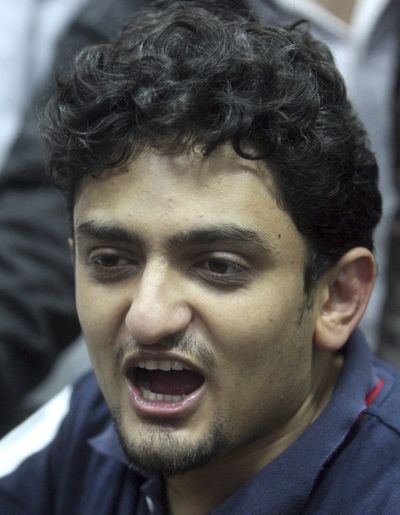Egypt’s leadership offers panels, probe of violence

CAIRO – In one of the largest demonstrations in recent weeks at Cairo’s vast Tahrir Square, boisterous crowds continued to press for the end of Egyptian President Hosni Mubarak’s regime, while officials offered another set of compromises to try to appease anti-government protesters.
Vice President Omar Suleiman said Tuesday a pair of special committees will begin working immediately to bring political reforms. A third committee, which will launch soon, will investigate the bloody clashes last Wednesday between anti-government protesters and Mubarak supporters, he said.
Suleiman said Mubarak promised that protesters – some of whom have been detained or arrested since the movement began Jan. 25 – would not be punished.
“The president emphasized that the youth of Egypt deserve the appreciation of their country,” Suleiman said in a statement aired on state television. “And he issued his instructions that prevent their pursuit or restrictions on them or denial of their freedom of opinion and expression.”
The announcement included few specifics and seemed unlikely to appease protesters who are entering their third week of demonstrations across the country calling for nothing short of Mubarak’s immediate resignation after three decades in power. Mubarak has refused to step down, though he announced he would not seek re-election this year.
The large showing by protesters was seen by many as a rebuke to government attempts at concessions that fell well below their demands. Estimates put the attendance at the Cairo protest close to or larger than last week’s demonstrations, which attracted an estimated 200,000 people. Google executive and Facebook activist Wael Ghonim briefly addressed the cheering crowd, a day after he was released from police custody.
Some protesters marched several blocks to the parliament building, a spot they had been prevented from reaching before by the army. It was a symbolic move in recognition of November’s parliamentary elections, which were marred by mass arrests, pressure on independent candidates, media harassment and a boycott by some opposition groups.
Protesters have criticized the government for corruption, lack of economic opportunity and repression.
Hani Kamal, a 23-year-old recent college graduate, was among those not particularly impressed by Suleiman’s announcement.
“He talked about investigating Wednesday’s events, which is good, but it’s not one of our main demands,” Kamal said. “They should start showing good will regarding our priorities but they only want to do reforms according to the regime’s own convenience, not according to people’s demands.”
He said the protesters will wait to see what tangible steps are proposed by the committee for constitutional amendments. But Kamal was less hopeful regarding talks between the Mubarak regime and opposition group the Muslim Brotherhood.
“That’s a joke because those so-called opposition parties don’t represent the people anyway,” he said. “They were handpicked by the regime and real opposition figures or the youth protesters were not invited for any talks.”